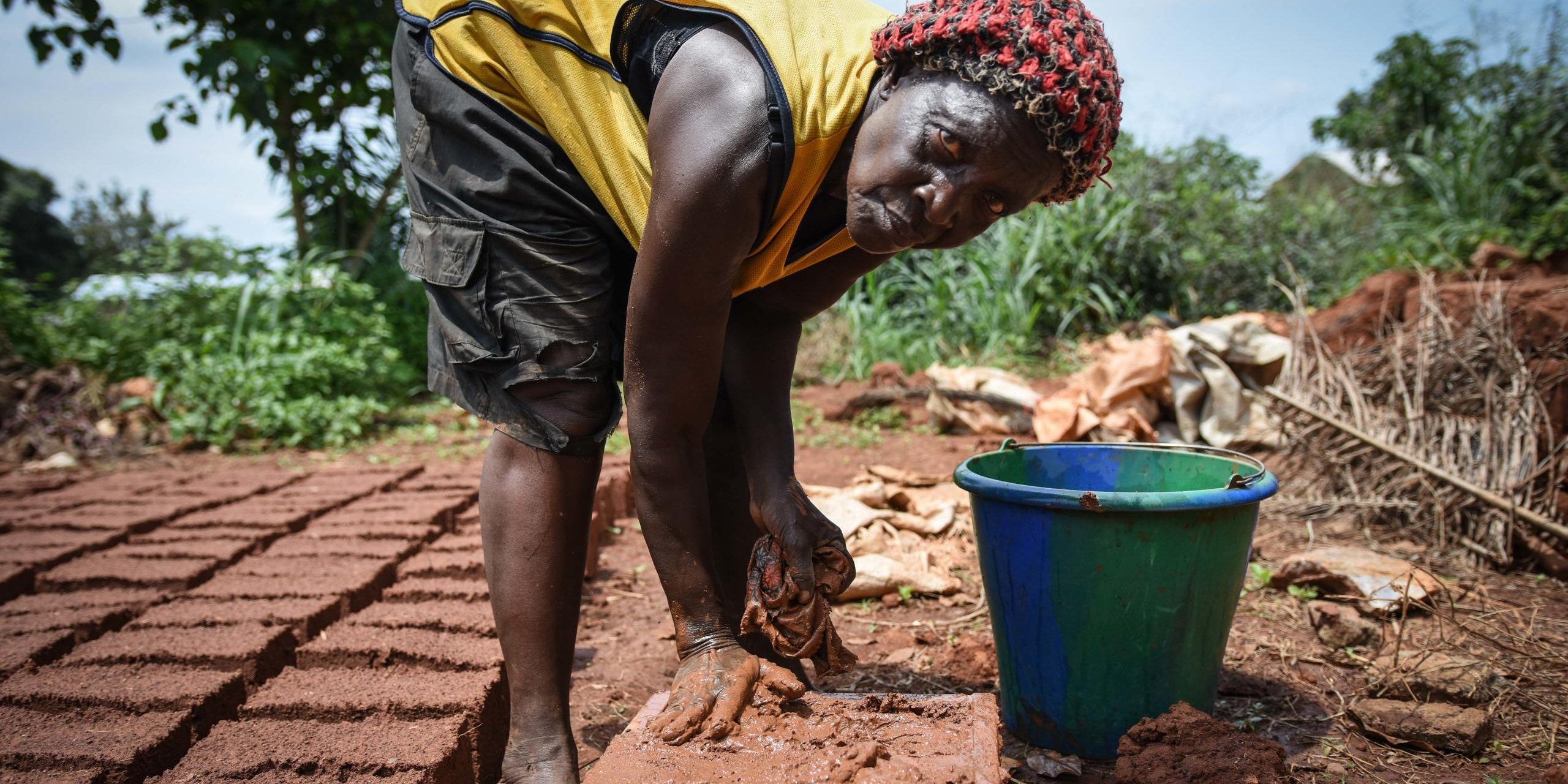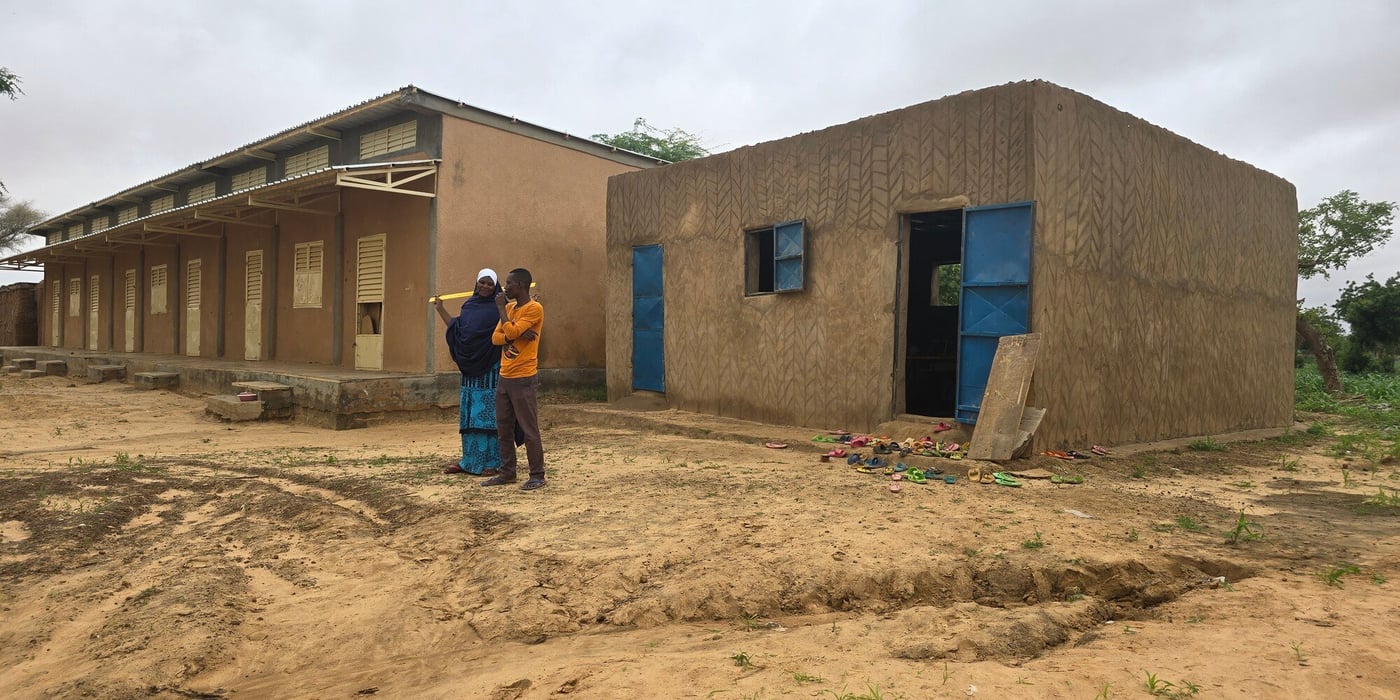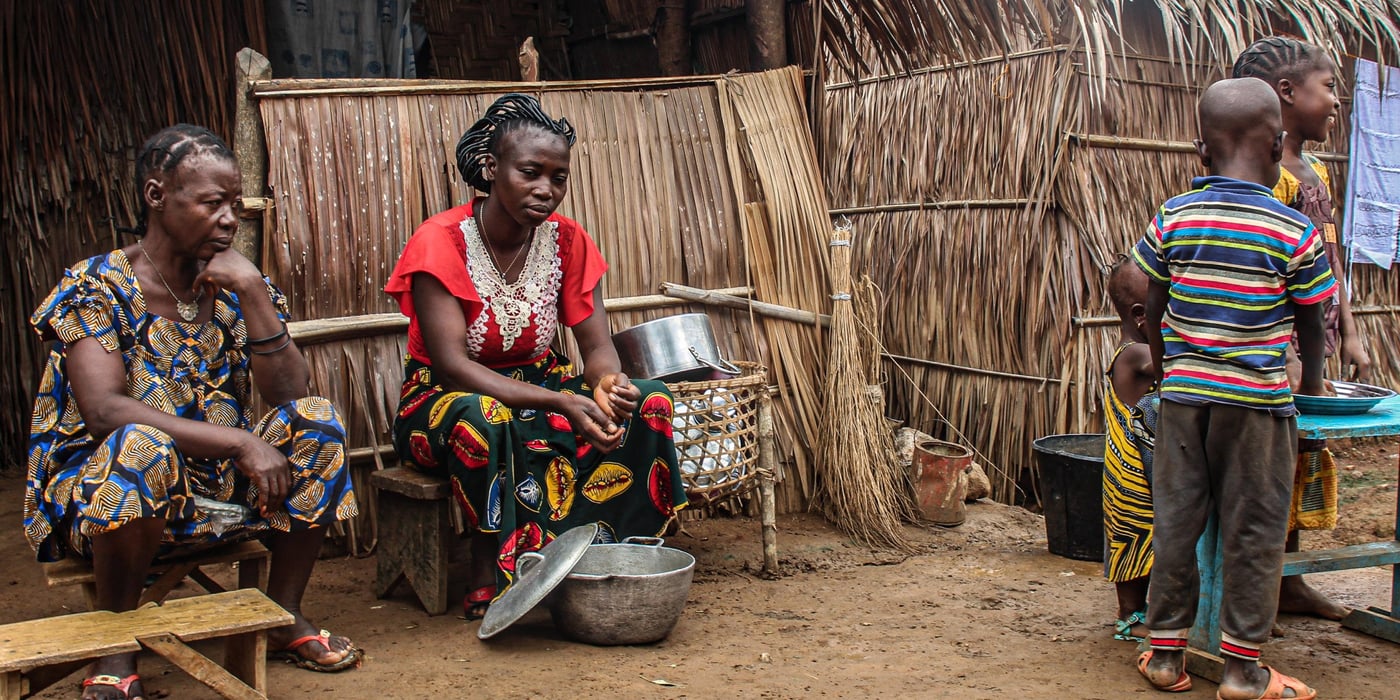
When the Central African Republic’s (CAR) government closed all the camps for displaced people sites in its capital Bangui, many people were left without a home.
The camps residents had no choice but to return to their areas of origin, only to find that their homes had burned to the ground or been damaged during the violent conflict that has plagued CAR since 2013.
Clashes between the mostly Christian and animist group known as anti-balaka and the predominantly Muslim groups known as the ex-Seleka have forced over a million people to flee their homes. During the last year, fighting has escalated in the north and the east of the country, and spread to new areas.
Thousands of people living in the capital became internally displaced and sought refuge in camps. But in 2016, the government declared that it was safe for people to return to their homes, and closed all the camps as a result.
Rebuilding their own houses
The Norwegian Refugee Council (NRC), with funding from the UN refugee agency, supports home reconstruction in Begoua, a city just north of Bangui.
The project requires the whole community to engage and participate by providing the bricks for construction. A special committee makes bricks for the most vulnerable households.
This type of work is normally done by men. So despite the stereotypes, women have decided to break with tradition and make their own bricks.
Judith is one of thousands of people who have fled from clashes between armed groups in the last year. She has made 500 bricks, which she has piled next to her house until the building starts.
“I am proud I could have been a model for women in my district who think brick making is only a man’s business,” she says.
When asked what other women may think of her, she pauses before concluding with pride: “Everywhere I go, people see a woman capable of doing the same things a man can do.”
Women are active participants
Helene, a 52-year-old mother of five, is making bricks in Zacko 2 district. Most of the work involves extracting clay from the soil and fetching water. The fabrication process takes up to two days.
“I start by digging the soil,” she explains. “Then I mix it with water and let it dry one day before putting it into a mould to create the bricks.”
Nineteen out of the 50 households in the project are headed by women. Six of them are participating in building their own houses in a country where manual labour is viewed as a man’s job.
“Supporting returnees to have access to their house and secure their right of property is a crucial step towards social cohesion and stability,” says Eric Batonon, NRC’s country director in CAR.




